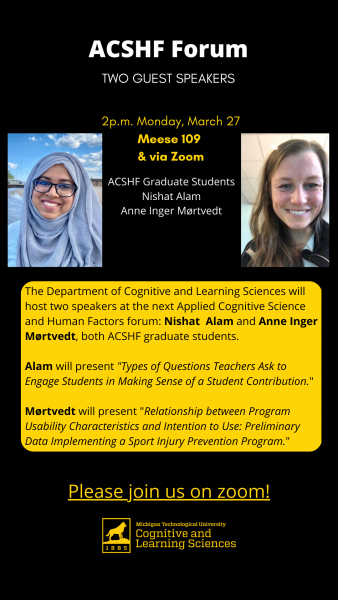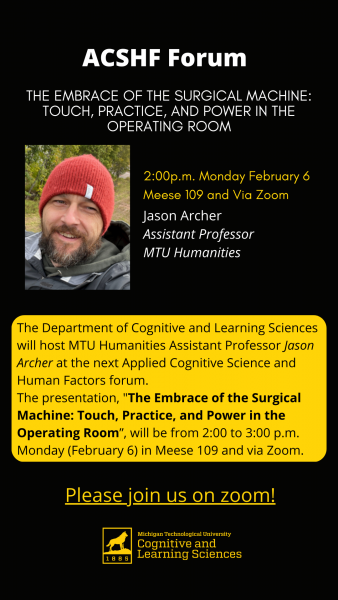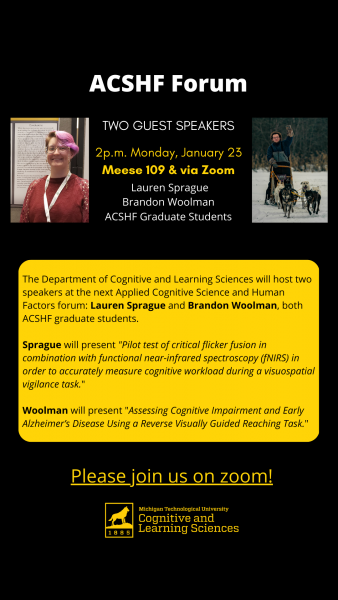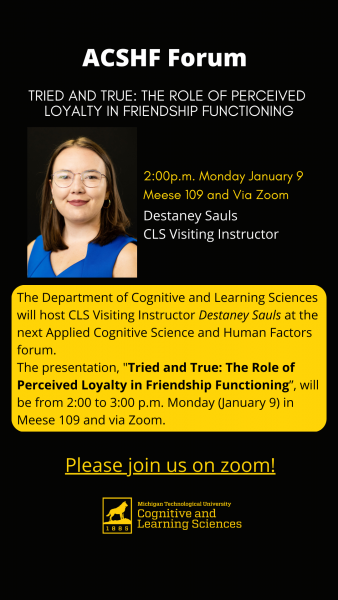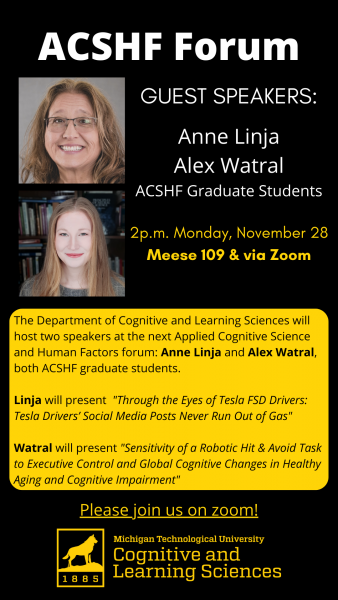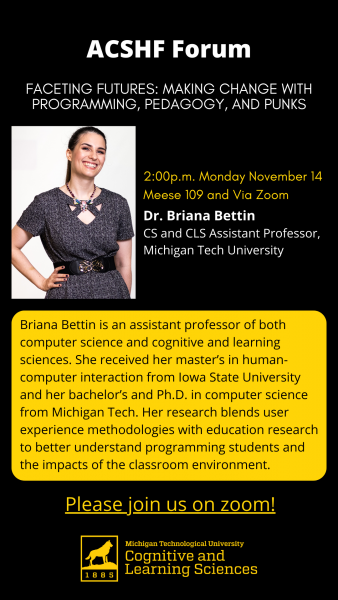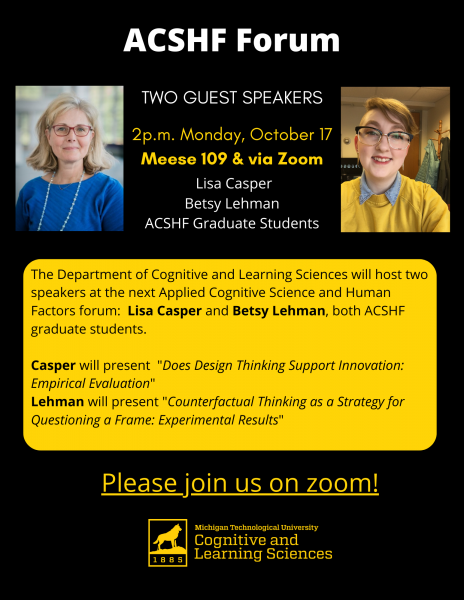The Department of Cognitive and Learning Sciences will host two speakers at the next Applied Cognitive Science and Human Factors forum: Nishat Alam and Anne Inger Mørtvedt, both ACSHF graduate students. Their presentations will be from 2:00 to 3:00 p.m. Monday (March 27) in Meese 109 and via Zoom.
Alam will present “Types of Questions Teachers Ask to Engage Students in Making Sense of a Student Contribution.”
Abstract:
In the student center classroom, where teachers constantly make decisions based on what is happening surrounding them, what they are noticing, and how they are interpreting student contributions, a teacher’s interpretation and response to student mathematical contributions plays an important role to shape and direct students’ thinking. In particular, failing to ask productive questions that help students to engage in a sense-making discussion could deteriorate cognitive opportunities. This research is planning to study what types of questions teachers indicate they would ask to engage students in making sense of a high-leverage student mathematical contribution, what Leatham et al. (2015) refer to as a MOST (Mathematically Significant Pedagogical Opportunities to Build on Student Thinking) and their reasoning about why particular questions are or are not productive. In this study, a scenario-based survey questionnaire will be sent via email to 100 middle and high school teachers. In the given scenario, a MOST has surfaced, and teachers will be asked three questions about how they would respond in the scenario. This research could lead us to determine if teachers are selecting the questions which are likely to be productive in supporting students’ mathematical thinking and why they select the questions that they do. Knowing this will inform future work with teachers to productively use student thinking in their teaching.
Mørtvedt will present “Relationship between Program Usability Characteristics and Intention to Use: Preliminary Data Implementing a Sport Injury Prevention Program.”
Abstract:
Adherence to exercise programs is low across multiple populations. For example, within the target population for ACL injuries, only ~4-20 % of sports teams have implemented evidence based injury prevention programs. This study explored the relationship between usability characteristics and implementation likelihood for a newly developed ACL injury prevention program. Twenty-two female handball players, aged 16 to 18, participated in the intervention study. Data on usability characteristics was collected through a modified usability scale similar to the System Usability Scale. Subcomponents of the usability scale included
learnability, perceived effectiveness, ease of use, enjoyability and efficiency. Paired sample’s t-test revealed a significant difference between all constructs from pre to post intervention, except for the perceived effectiveness score. Enjoyability and efficiency were the constructs that changed the most, both scores going down post intervention. Perceived effectiveness, enjoyability and efficiency were significantly correlated with intention to use the program (rho 0.50, p = 0.02, rho 0.50, p= 0.02, rho 0.65, p < 0.001, respectively), indicating that program adherence is affected by whether they believe the program will work (e.g. reduce injuries),
whether they enjoy performing the program and whether they find it reasonable with regard to time use. We did not find any significant relationships between the two other subcomponents (e.g. learnability, ease of use) and intention to use. This preliminary data suggests that program designers may want to make sure participants understand why it is important to perform the program, in addition to developing an exercise program that they seem to enjoy performing and find worth their time. Future studies should capture more data on the usability scale/subscales to ensure the factor structure is consistent and items display appropriate psychometric properties.
